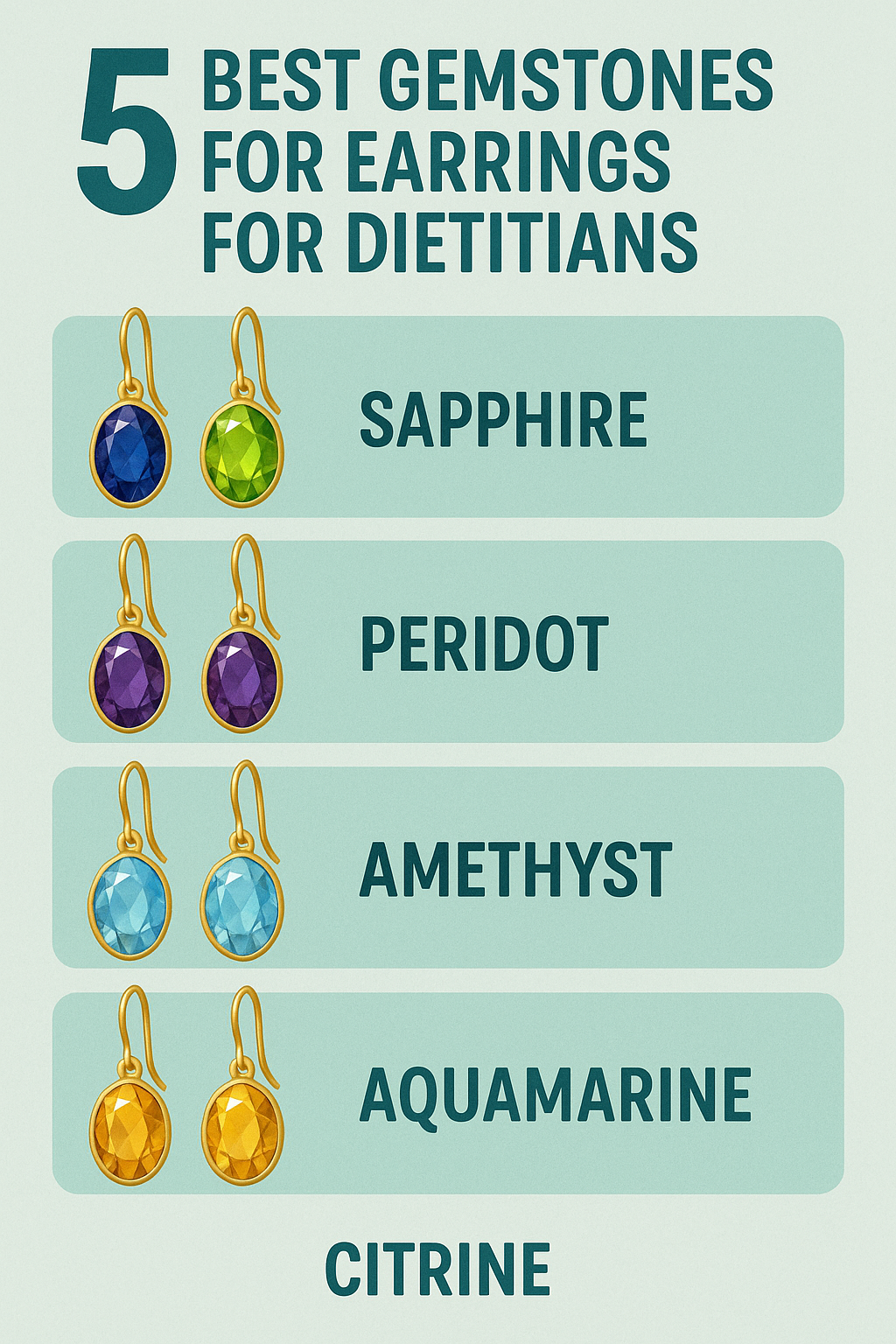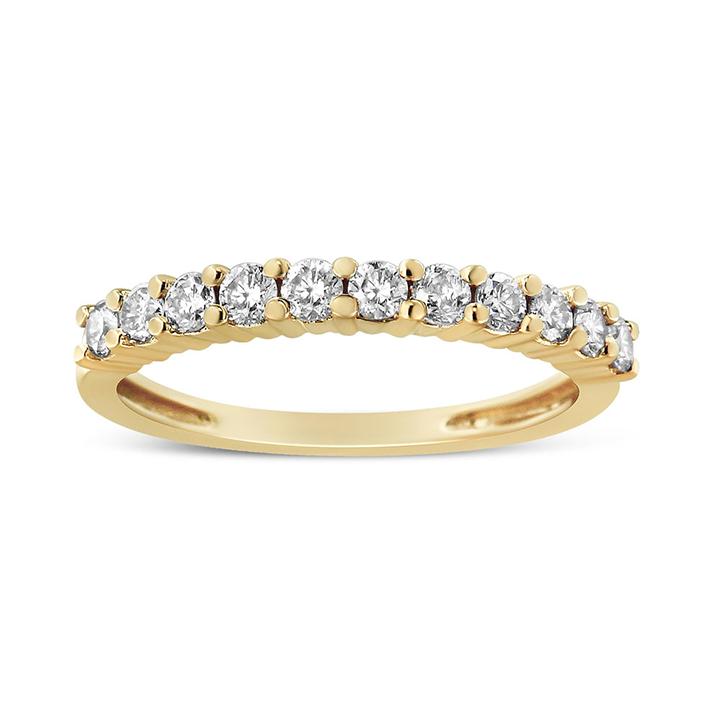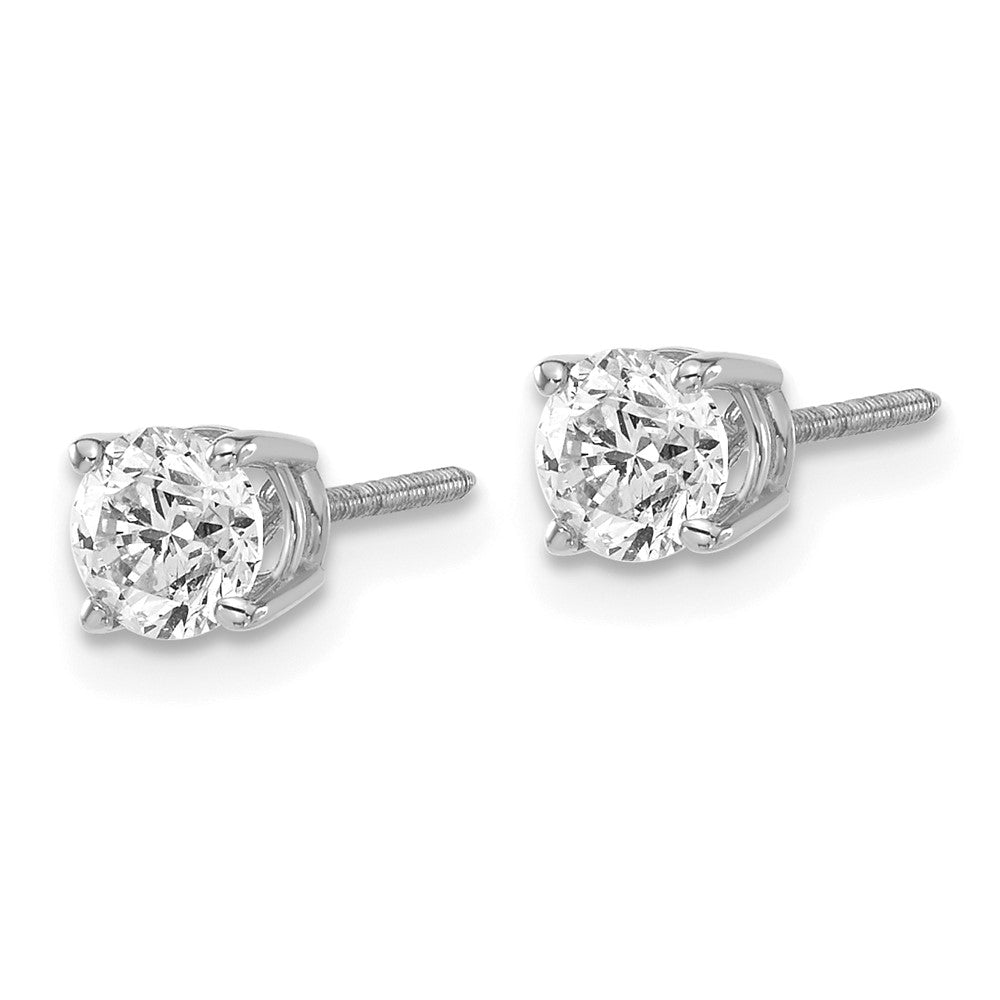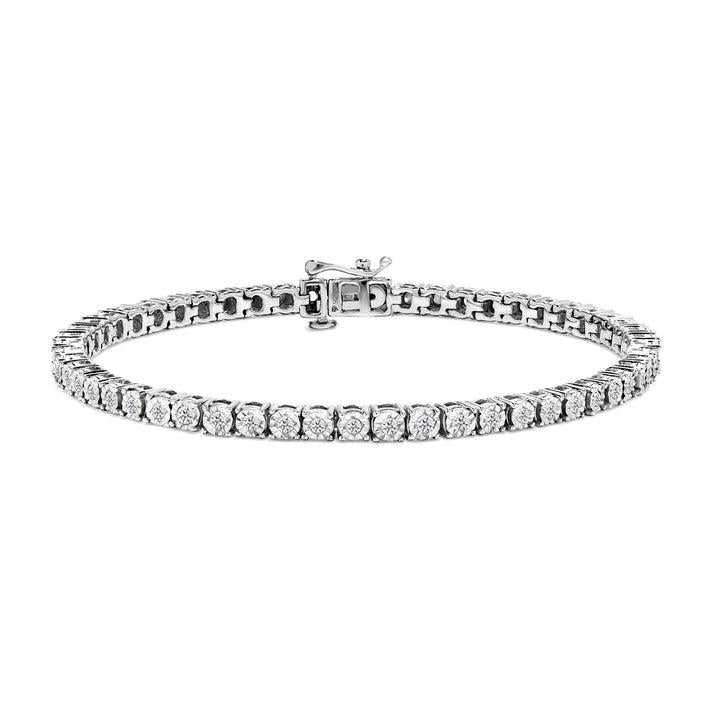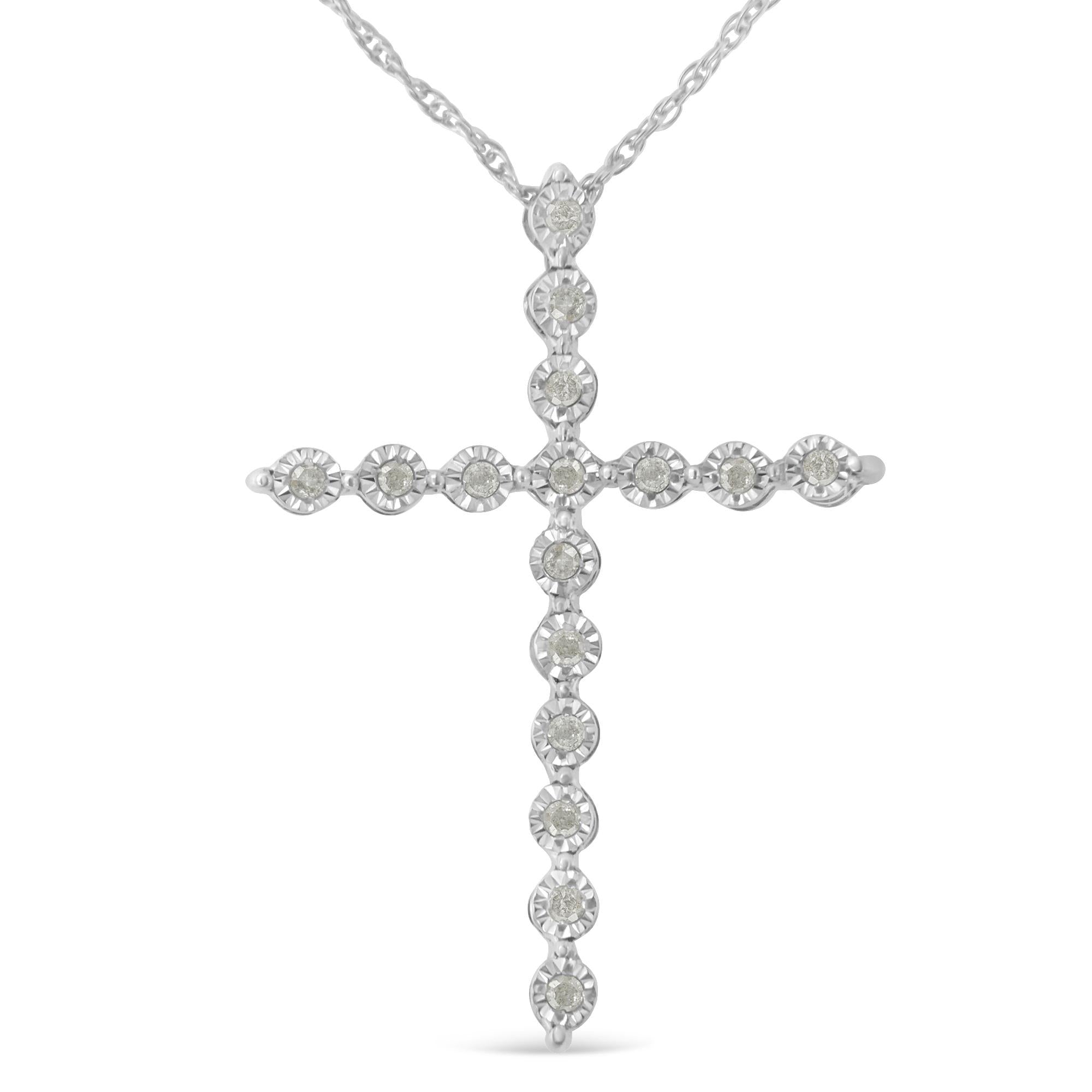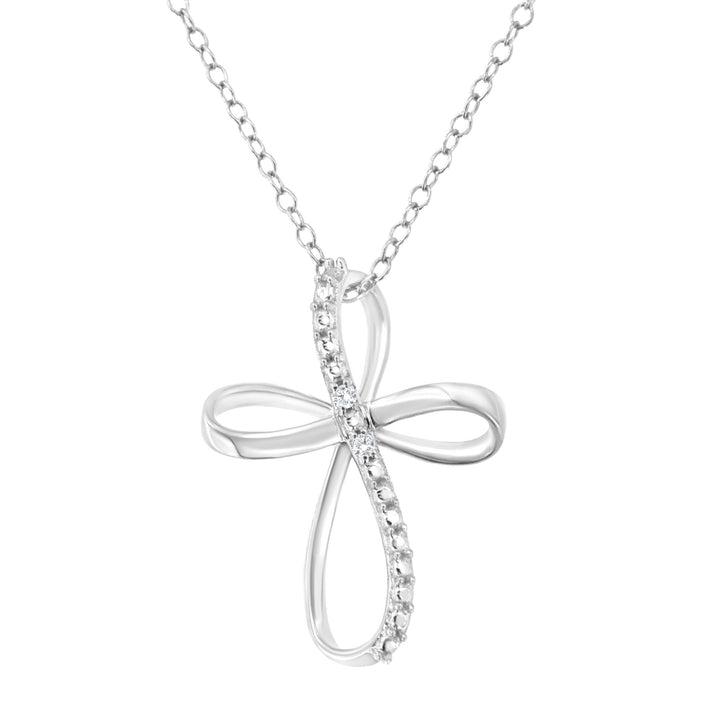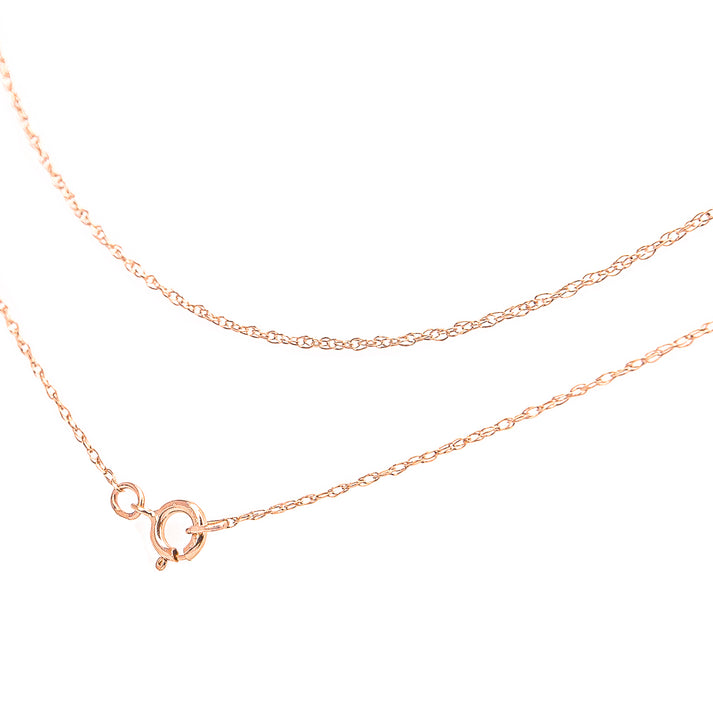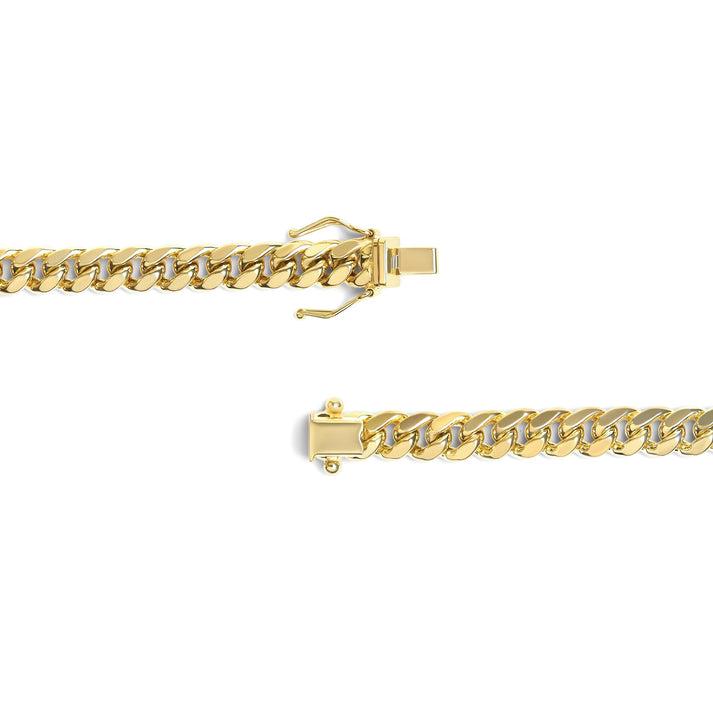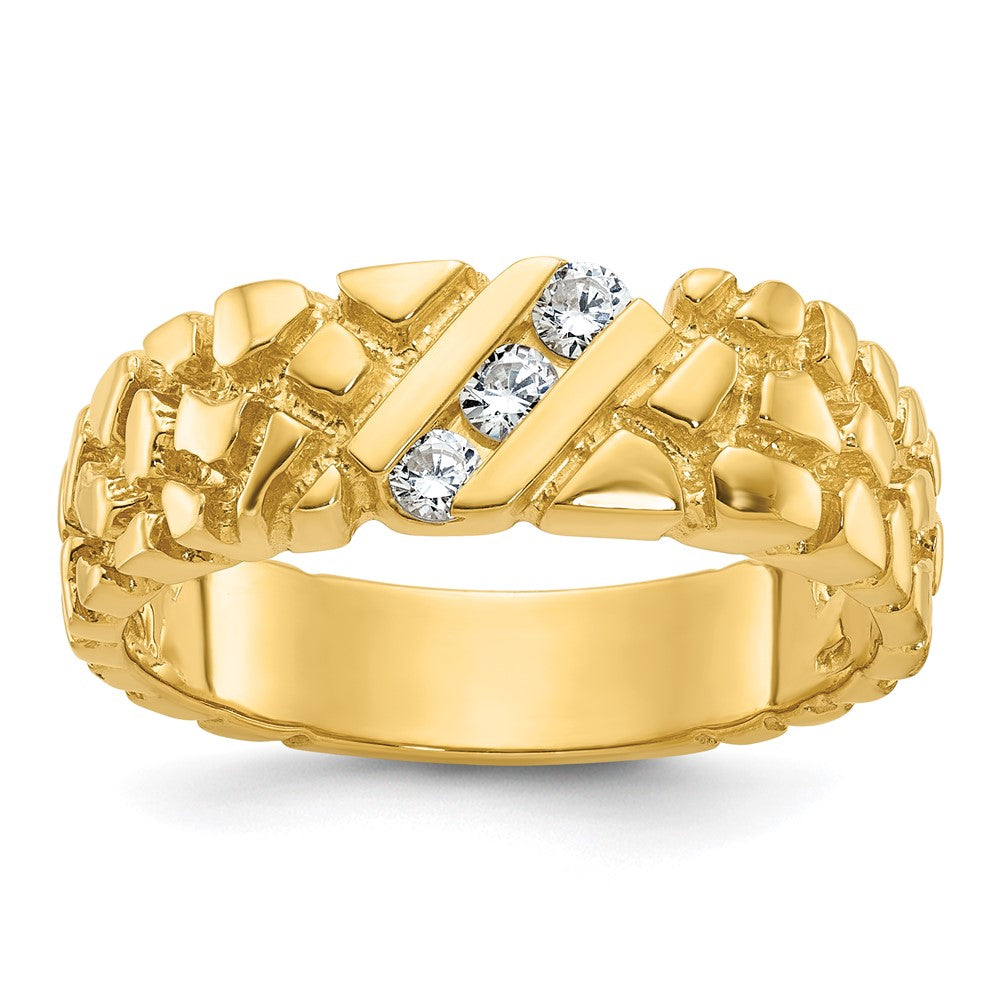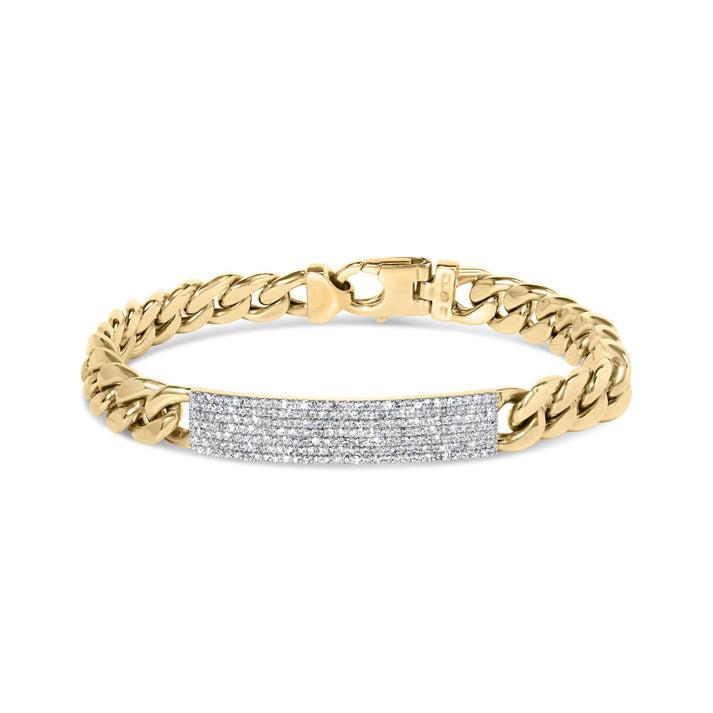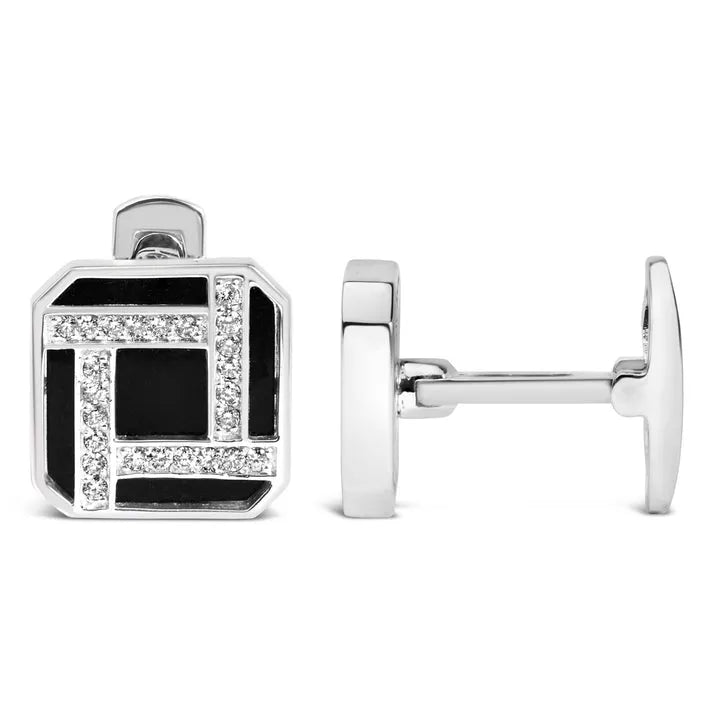Dietitians are professionals dedicated to promoting health and wellness through nutrition. Their work requires a blend of scientific knowledge, interpersonal skills, and a professional appearance that conveys trust and approachability. Earrings, as a subtle yet impactful accessory, can enhance their professional image while reflecting their personality and values. Certain gemstones, with their unique properties, colors, and symbolic meanings, are particularly well-suited for dietitians. This article explores the five best gemstones for earrings for dietitians, considering their aesthetic appeal, symbolic significance, durability, and alignment with the values of health and wellness. Each gemstone is chosen to complement the professional and personal lives of dietitians, ensuring they shine in both clinical and casual settings.
1. Amethyst: The Stone of Clarity and Calm
Why Amethyst?
Amethyst, with its captivating purple hue, is a gemstone that resonates deeply with dietitians. Known as the stone of clarity and calm, amethyst is believed to promote mental focus, reduce stress, and enhance intuition—qualities that are invaluable for dietitians who often juggle complex nutritional plans, client consultations, and research. The soothing energy of amethyst can help dietitians maintain composure during busy days, whether they’re counseling clients or presenting at wellness seminars.
Aesthetic Appeal
Amethyst’s rich purple tones, ranging from soft lavender to deep violet, make it a versatile choice for earrings. Its vibrant yet calming color complements a wide range of skin tones and professional outfits, from crisp white lab coats to business-casual attire. Amethyst earrings, whether in delicate studs or elegant drop designs, add a touch of sophistication without being overly flashy, aligning with the professional demeanor of dietitians.
Durability and Practicality
With a Mohs hardness of 7, amethyst is durable enough for daily wear, making it ideal for dietitians who need accessories that can withstand long hours in various settings, from hospitals to private practices. Its affordability also allows dietitians to invest in high-quality pieces without breaking the bank.
Symbolism and Wellness Connection
In holistic traditions, amethyst is associated with balance and emotional well-being, qualities that resonate with dietitians’ focus on holistic health. The gemstone’s calming properties can serve as a subtle reminder to prioritize self-care, an essential practice for professionals who dedicate their careers to helping others. Wearing amethyst earrings can also signal to clients a commitment to mindfulness and balance, fostering trust and rapport.
Styling Tips
-
Stud Earrings: Small amethyst studs are perfect for everyday wear, offering a professional yet stylish look for dietitians working in clinical settings.
-
Drop Earrings: For networking events or seminars, amethyst drop earrings with silver or gold settings can add elegance to a blazer or dress.
-
Pairing: Amethyst pairs beautifully with neutral tones like white, gray, or navy, as well as pastel shades, which are often favored in professional wardrobes.
2. Citrine: The Stone of Energy and Abundance
Why Citrine?
Citrine, with its warm yellow to golden hues, is a gemstone that exudes positivity and energy. For dietitians, who often inspire clients to make positive lifestyle changes, citrine’s uplifting energy aligns perfectly with their mission. Known as the “merchant’s stone,” citrine is also associated with abundance and success, making it a fitting choice for dietitians building their careers or private practices.
Aesthetic Appeal
Citrine’s sunny, translucent glow adds a pop of color to any outfit, making it an excellent choice for earrings that stand out without overwhelming. Its warm tones complement earthy and vibrant color palettes alike, allowing dietitians to express their personality while maintaining professionalism. Citrine earrings, whether faceted or raw, bring a cheerful vibrancy that can brighten both the wearer’s mood and the atmosphere of a consultation.
Durability and Practicality
Like amethyst, citrine has a Mohs hardness of 7, ensuring it can handle the demands of daily wear. Its durability makes it suitable for dietitians who move between client meetings, kitchen demonstrations, and office work. Citrine is also relatively affordable, offering a range of options from simple studs to intricate chandelier designs.
Symbolism and Wellness Connection
Citrine is often linked to vitality and optimism, qualities that dietitians strive to instill in their clients through nutrition education. The gemstone’s association with the solar plexus chakra, which governs personal power and confidence, can empower dietitians to approach their work with enthusiasm and authority. Citrine earrings can serve as a visual reminder of the joy and fulfillment that come from helping others achieve their health goals.
Styling Tips
-
Hoop Earrings: Citrine accents in small hoop earrings offer a modern, professional look for dietitians attending workshops or community events.
-
Cluster Earrings: Combining citrine with other gemstones like peridot or topaz creates a dynamic, wellness-inspired look for casual Fridays or client-facing roles.
-
Pairing: Citrine shines against bold colors like navy or olive green, as well as soft neutrals, making it versatile for various professional settings.
3. Peridot: The Stone of Renewal and Growth
Why Peridot?
Peridot, with its vibrant lime-green sparkle, is a gemstone that symbolizes renewal, growth, and vitality. For dietitians, who guide clients toward healthier lifestyles and personal growth, peridot’s energy is a perfect match. This gemstone is also believed to promote digestive health and detoxification, aligning with the core principles of nutrition and wellness.
Aesthetic Appeal
Peridot’s bright, fresh green hue is eye-catching yet refined, making it an excellent choice for earrings that add a touch of nature-inspired beauty. Its lively color complements the vibrant, health-focused persona of dietitians, whether they’re working in clinical settings or leading wellness workshops. Peridot earrings, from simple studs to dangling designs, bring a youthful, energetic vibe to any look.
Durability and Practicality
Peridot has a Mohs hardness of 6.5 to 7, which is slightly less durable than amethyst or citrine but still suitable for earrings, as they experience less wear than rings or bracelets. Dietitians should opt for secure settings, such as bezel or prong, to protect peridot stones during active workdays. Peridot’s affordability allows for a variety of styles, from minimalist to statement pieces.
Symbolism and Wellness Connection
Peridot’s association with renewal and cleansing makes it a meaningful choice for dietitians who emphasize the transformative power of nutrition. The gemstone’s connection to the heart chakra encourages compassion and empathy, qualities that dietitians rely on when building trust with clients. Wearing peridot earrings can subtly convey a commitment to growth and healing, resonating with clients seeking positive change.
Styling Tips
-
Dangle Earrings: Peridot dangle earrings with sterling silver or white gold settings are ideal for dietitians presenting at conferences or wellness fairs, adding a touch of flair.
-
Peridot Stud Earrings: Tiny peridot studs are perfect for everyday wear, offering a subtle nod to nature and health in clinical or office environments.
-
Pairing: Peridot pairs well with earthy tones like brown or beige, as well as crisp whites, creating a fresh, professional look.
4. Turquoise: The Stone of Healing and Communication
Why Turquoise?
Turquoise, with its striking blue-green hue, is a gemstone revered for its healing properties and ability to enhance communication. Dietitians, who often act as educators and communicators, can benefit from turquoise’s energy, which promotes clarity and empathy in interactions. This gemstone also carries a rich cultural history, often associated with protection and well-being, making it a meaningful choice for health professionals.
Aesthetic Appeal
Turquoise’s unique color, ranging from sky blue to deep teal, adds a bold yet approachable touch to earrings. Its earthy, organic vibe complements the natural, holistic focus of many dietitians, particularly those who specialize in plant-based or integrative nutrition. Turquoise earrings, whether polished or raw, make a statement while remaining professional and grounded.
Durability and Practicality
Turquoise has a Mohs hardness of 5 to 6, making it softer than other gemstones on this list. However, as earrings experience minimal wear, turquoise is a practical choice when set securely. Dietitians should avoid exposing turquoise to harsh chemicals or prolonged sunlight, which can affect its color. Its affordability and availability in various styles make it accessible for professionals.
Symbolism and Wellness Connection
Turquoise is often linked to healing, balance, and protection, aligning with dietitians’ mission to foster health and well-being. Its association with the throat chakra enhances communication, helping dietitians articulate nutritional advice clearly and compassionately. Turquoise earrings can serve as a subtle reminder of the importance of connection and understanding in client relationships.
Styling Tips
-
Chandelier Earrings: Turquoise chandelier earrings with silver accents are perfect for dietitians attending wellness retreats or speaking engagements, adding a bohemian flair.
-
Stud Earrings: Simple turquoise studs are ideal for daily wear, offering a professional yet approachable look for client consultations.
-
Pairing: Turquoise complements neutral tones like white or gray, as well as denim or earthy browns, creating a cohesive, wellness-inspired aesthetic.
5. Rose Quartz: The Stone of Love and Compassion
Why Rose Quartz?
Rose quartz, with its soft pink glow, is the stone of love, compassion, and emotional healing. For dietitians, who often work closely with clients to address sensitive topics like weight management or dietary restrictions, rose quartz’s gentle energy fosters empathy and understanding. This gemstone encourages self-love and care, reminding dietitians to nurture themselves as they support others.
Aesthetic Appeal
Rose quartz’s delicate pink hue is feminine and understated, making it an excellent choice for earrings that add warmth and approachability to a professional look. Its soft color complements a wide range of skin tones and outfits, from tailored blouses to casual sweaters. Rose quartz earrings, whether in polished cabochons or faceted stones, exude a nurturing, inviting energy.
Durability and Practicality
With a Mohs hardness of 7, rose quartz is durable enough for daily wear, making it suitable for dietitians who need reliable accessories. Its affordability allows for a variety of styles, from minimalist studs to intricate drop earrings. Rose quartz is also low-maintenance, requiring only gentle cleaning to maintain its luster.
Symbolism and Wellness Connection
Rose quartz is associated with the heart chakra, promoting love, compassion, and emotional balance. For dietitians, this gemstone’s energy aligns with their role as empathetic guides who help clients navigate personal health journeys. Wearing rose quartz earrings can reinforce a dietitian’s commitment to kindness and care, both for themselves and their clients.
Styling Tips
-
Drop Earrings: Rose quartz drop earrings with gold or rose gold settings are perfect for dietitians attending client meetings or wellness events, adding a touch of elegance.
-
Quartz Stud Earrings: Small rose quartz studs are ideal for everyday wear, offering a subtle, professional look for clinical or office settings.
-
Pairing: Rose quartz pairs beautifully with soft pastels, whites, or blush tones, creating a warm, approachable aesthetic.
Choosing the Right Gemstone for You
Selecting the perfect gemstone for earrings depends on a dietitian’s personal style, professional environment, and the qualities they wish to embody. Here are a few considerations to guide the decision:
-
Work Environment: For clinical settings, opt for durable, understated gemstones like amethyst or rose quartz in stud designs. For wellness-focused roles or public speaking, bolder choices like turquoise or citrine in drop or chandelier styles can make a statement.
-
Personal Values: Choose a gemstone that resonates with your approach to nutrition. For example, peridot suits dietitians who emphasize renewal and growth, while turquoise aligns with those who prioritize communication and healing.
-
Budget: All five gemstones are relatively affordable, but citrine and rose quartz often offer the most budget-friendly options for high-quality pieces.
-
Maintenance: While all these gemstones are suitable for earrings, turquoise requires extra care to avoid discoloration. Ensure proper storage and cleaning to maintain their beauty.
Conclusion
Earrings are more than just accessories for dietitians—they’re a way to express personality, reinforce professional values, and connect with clients on a deeper level. Amethyst, citrine, peridot, turquoise, and rose quartz each offer unique benefits, from promoting clarity and energy to fostering compassion and communication. By choosing gemstone earrings that align with their personal and professional goals, dietitians can enhance their presence and make a lasting impression in their field. Whether you’re drawn to the calming purple of amethyst or the vibrant green of peridot, these gemstones are sure to complement the meaningful work of dietitians while adding a touch of beauty to their everyday lives.
